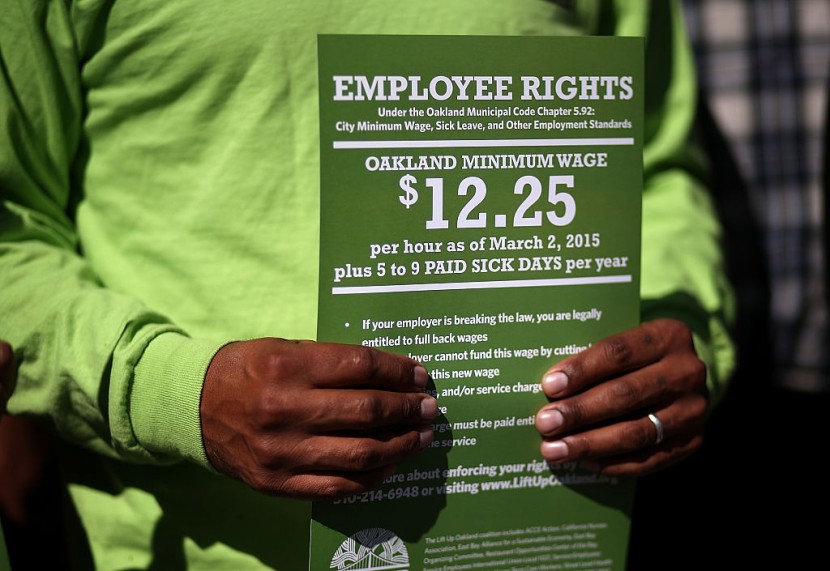
Democrats have been nearer to achieving a much-sought-after minimum wage increase. This is notwithstanding opposition growing against the involvement of a nationwide wage floor of $15 per hour in the forthcoming COVID-19 relief package.
Minimum Wage Increase
For small-business owners, in particular, they will breathe a sigh of relief if the proposal to increase federal minimum wage fails to pass Congress as included in the economic rescue plan. Union activist Terrence Wise reminisces being laughed at when he began pushing for a nationwide $15 per hour minimum wage nearly one decade ago. Almost one year into the pandemic, the idea is reportedly not so funny.
The novel coronavirus has reignited focus on hurdles facing hourly employees who have continued working in gas stations, grocery stores, and other in-person locations despite much of the workforce being shifted to virtual environments. President Joe Biden has responded by the inclusion of a provision in the massive pandemic relief bill that would more than double the minimum wage from $7.25 to $15 an hour. However, the effort is facing an unprecedented roadblock: Biden himself, reported News Channel 6.
Previously, an amendment offered by Sen. Joni Ernst (R-Iowa) to bar increasing the federal minimum wage as the United States continues tackling the coronavirus was unanimously adopted by the Senate. According to the Senate GOP Floor Monitor on Twitter, "Adopted by voice vote: Ernst Amendment #767 (Re: Prohibit the increase of the federal minimum wage during a global pandemic) in relation to S.Con.Res.5, Sanders Budget Resolution."
Adopted by voice vote: Ernst Amendment #767 (Re: Prohibit the increase of the federal minimum wage during a global pandemic) in relation to S.Con.Res.5, Sanders Budget Resolution.
— Floor Monitor (@senategopfloor) February 5, 2021
The federal government previously raised the minimum wage in 2009 to $7.25. The president's relief plan involves a proposal to increase the minimum wage to $15 per hour over five years. This has an increase by almost $1.50 yearly.
Biden has seemingly undermined the initiative to raise the minimum wage by acknowledging its dim prospects in Congress. It faces procedural hurdles and political opposition. This is frustrating to activists who worry their victory is being robbed away at the last minute, notwithstanding an administration that is otherwise an outspoken ally.
According to Wise, 41, and department manager at a McDonald's in Kansas City and a national leader of Fight for 15, an organized labor movement, "To have it this close on the doorstep, they need to get it done. They need to feel the pressure." Senators Joe Manchin (D-W.Va.) and Kyrsten Sinema (D-Ariz.) have already voiced out concerns regarding the inclusion of the provision in the $1.9 trillion relief package.
According to Sinema, "The minimum wage provision is not appropriate for the reconciliation process. It is not a budget item. And it shouldn't be in there," reported The Epoch Times. The minimum wage dispute underscores one of the central tensions surfacing in the early days of Biden's tenure. He won the White House with vows to respond to the COVID-19 pandemic with a barrage of liberal policy proposals. However, as a 36-year veteran of the Senate, the president is particularly attuned to the political dynamics on Capitol Hill and could be candid in his assessments.








